Explainers ·
What is climate change?
What it is, how it affects the Great Barrier Reef and what we're doing about it.
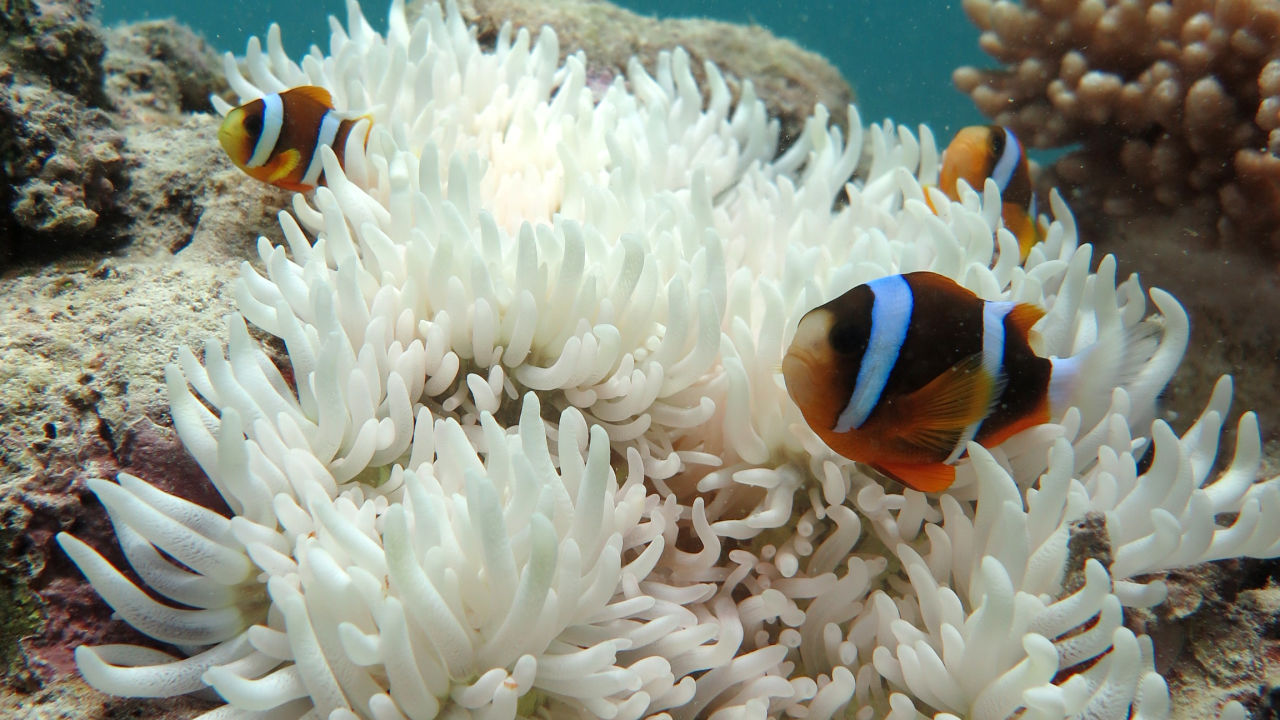
Climate change is a shift in temperature and weather patterns over a period of at least 30 years. The term can be used to describe changes in a particular location, or across the Earth as a whole.
Long-term changes in temperature can have a major impact on the Earth’s oceans, land surfaces and ice sheets. Warmer temperatures cause ocean waters to expand and can also cause ice sheets and glaciers to melt at a faster rate, both of which cause sea levels to rise. This destroys habitats in polar regions and causes flooding and erosion in others.
Climate change also makes it more difficult to accurately predict future weather patterns. A warmer climate collects and retains more water, which can lead to severe and highly variable weather events such as storms, flooding and cyclones.
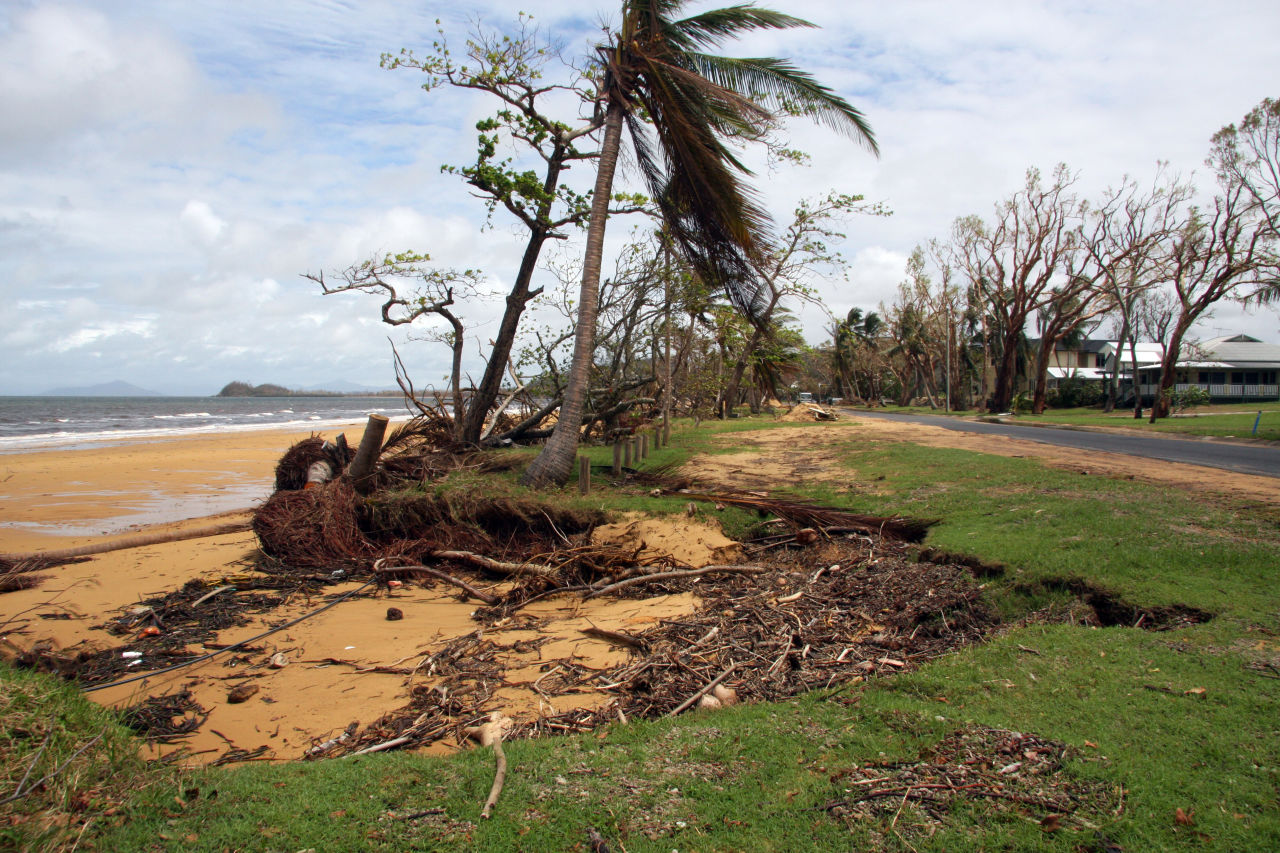
Cyclone Yasi hit the Cassowary Coast in North Queensland in February 2011. Credit: D. McColl, GBRMPA
#What are the causes of climate change?
The planet is currently experiencing a steady rise in temperatures on our land and in our oceans, caused primarily by an increase of carbon dioxide (CO2) and other greenhouse gases.
Carbon dioxide is a greenhouse gas that occurs naturally in our atmosphere. It plays an important role in absorbing and radiating heat to keep temperatures on Earth stable. But CO2 levels have been rising steadily for more than 100 years, due mainly to the burning of fossil fuels, trapping more heat in our atmosphere and contributing to climate change.
Already, average surface temperatures globally have risen 1.1 degrees since the late 1800s. This might not sound like a lot, but the ocean absorbs most of the heat trapped in Earth’s atmosphere, putting marine ecosystems – which are particularly vulnerable to heat stress – at risk.
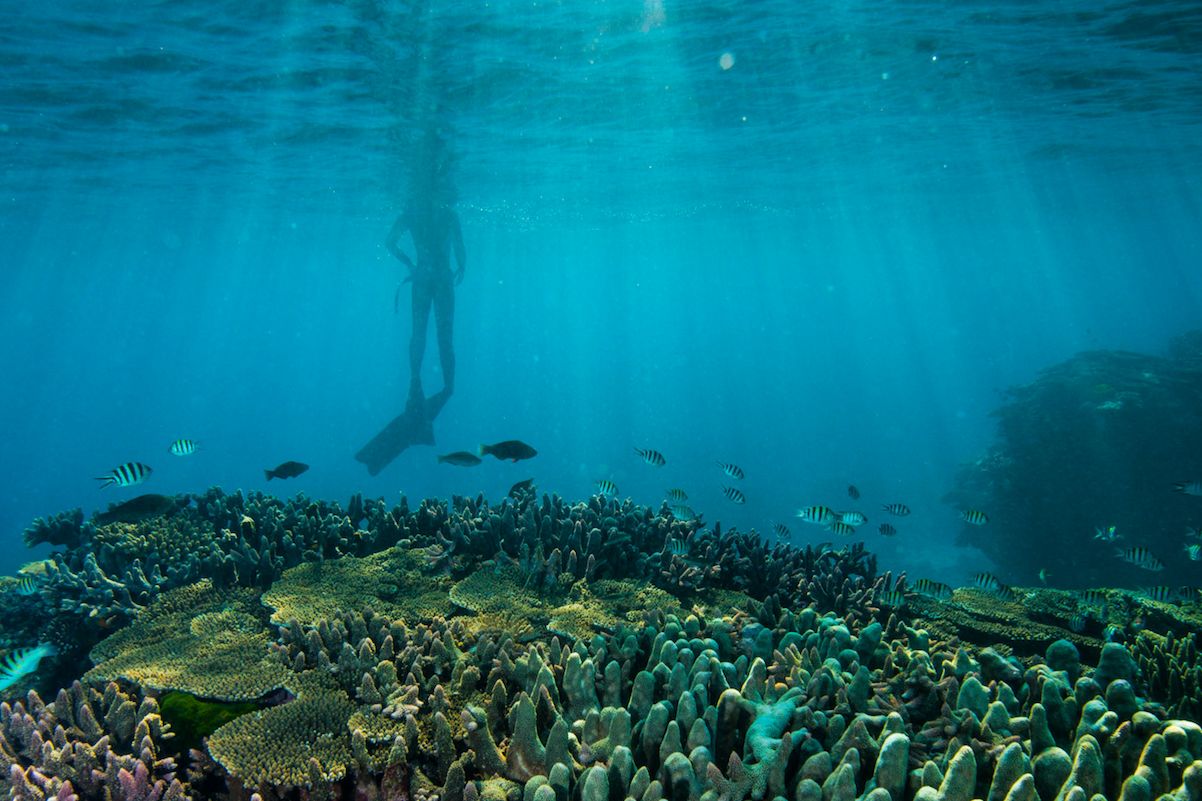
Rising temperatures in our oceans are putting coral reefs under increased stress.
#How does climate change affect the Great Barrier Reef?
The Great Barrier Reef is the largest living structure on Earth. It is one of the richest and most complex natural ecosystems in the world, but climate change is the biggest threat to the future of the Great Barrier Reef and coral reefs around the world.
Climate change impacts the Reef in a number of ways, including:
- Coral bleaching
When corals suffer heat stress, they expel the microscopic algae that live inside their tissues. Without the algae to provide colour, corals appear transparent and reveal their white skeletons. Bleached corals are not dead, but are more at risk of starvation and disease.
Already, marine heatwaves have triggered three mass coral bleaching events on the Great Barrier Reef in just five years, reducing shallow water coral reefs by as much as 50%. Coral reefs can recover from bleaching over time, but only if temperatures drop and conditions return to normal.
The Intergovernmental Panel on Climate Change projects that coral reefs worldwide will decline by a further 70-90 per cent by 2050, due to a 1.5 degree increase in global temperature.
If warming reaches 2 degrees, coral reefs may be lost forever, devastating thousands of species of marine life and around a billion people worldwide who rely on coral reefs for their food and livelihoods.
- Ocean acidification
The ocean absorbs CO2 from the atmosphere, making it more acidic. This process is called ocean acidification.
Since the late 18th century, the ocean has absorbed about 30% of the CO2 humans have generated, decreasing its pH level. A more acidic ocean means corals are less able to build skeletons and form reefs, which protect coastlines and provide habitats for thousands of species of marine life.
- Severe weather events
Climate change is increasing the frequency and intensity of severe weather events. It’s causing longer droughts and increased temperatures in some places and higher rainfall in others.
Coastal regions like the Great Barrier Reef are particularly exposed to damaging cyclones, flooding and storms. Between 2004 and 2018, 10 cyclones of category three or more crossed the Great Barrier Reef, causing significant damage to coral reefs.
- Habitat changes
As water temperatures rise, many marine species are being forced to move south to cooler habitats. This shift creates increased competition for food and shelter in cooler waters, threatening the entire ecosystem.
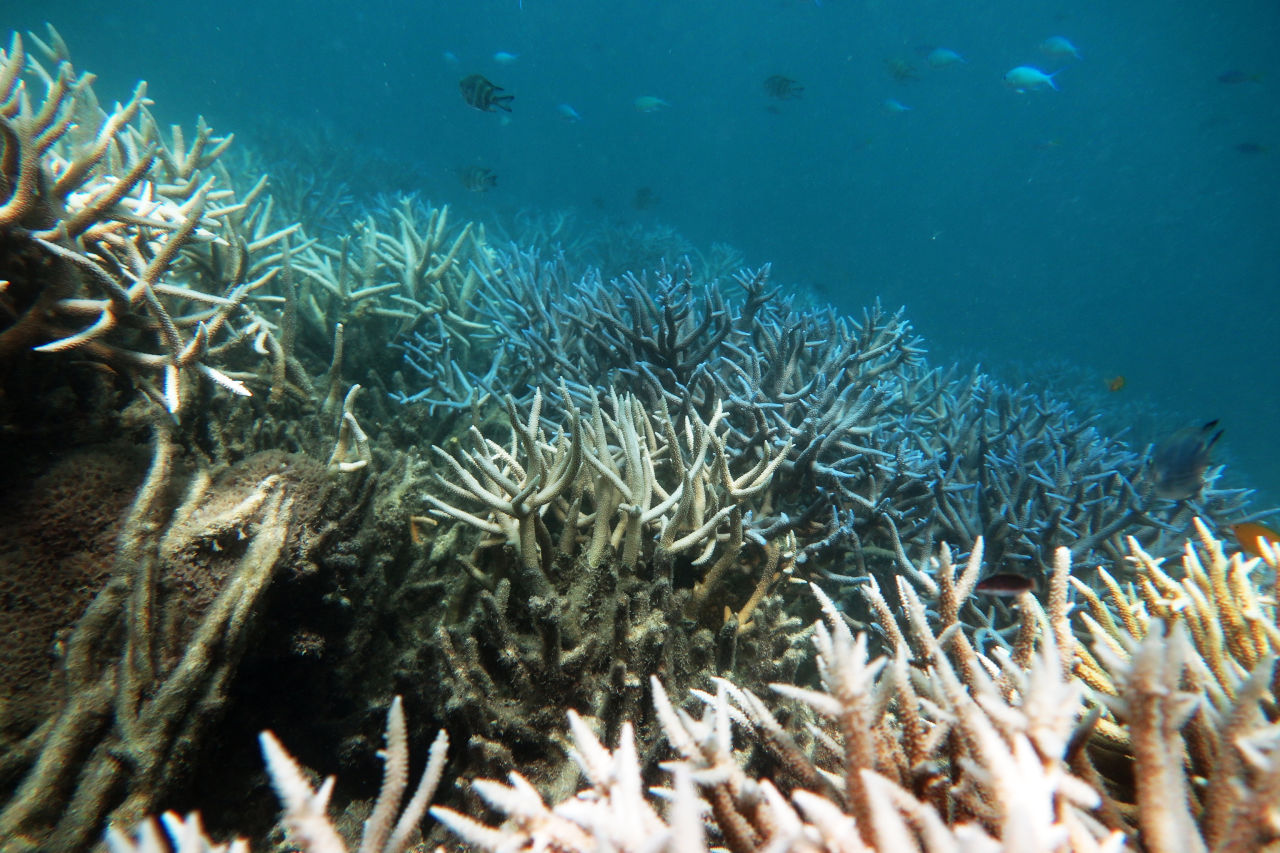
Marine heatwaves have triggered three mass coral bleaching events on the Great Barrier Reef in just five years.
#How to stop climate change
We have a once-in-a-generation opportunity to turn the tide on coral reef decline, but the window to act is closing. Science tells us this is the critical decade – if we act now, we can double the likelihood of having healthy coral reefs into the future.
To succeed, we must do two things: reduce greenhouse gas emissions and help coral reefs adapt to the changes already caused by climate change.
- Reduce emissions
Insufficient global action on climate change is taking a serious toll on the health of our Great Barrier Reef and coral reefs globally.
Urgent global action to drastically reduce emissions is needed now if we are going to have any chance of saving coral reefs.
As well as reducing emissions, we must support and strengthen key ecosystems like seagrass meadows, mangroves and wetlands, which help absorb CO2 from the atmosphere.
These ecosystems, known as blue carbon sites, play a key role in combating climate change by storing carbon. The Great Barrier Reef is one of the world’s most powerful blue carbon sites.
- Help coral reefs adapt
While the world works towards reducing greenhouse gas emissions, we must also build the resilience of Reef ecosystems. We are doing this by rapidly developing and scaling up interventions that buy time for coral reefs and help them adapt to the warmer temperatures already caused by climate change.
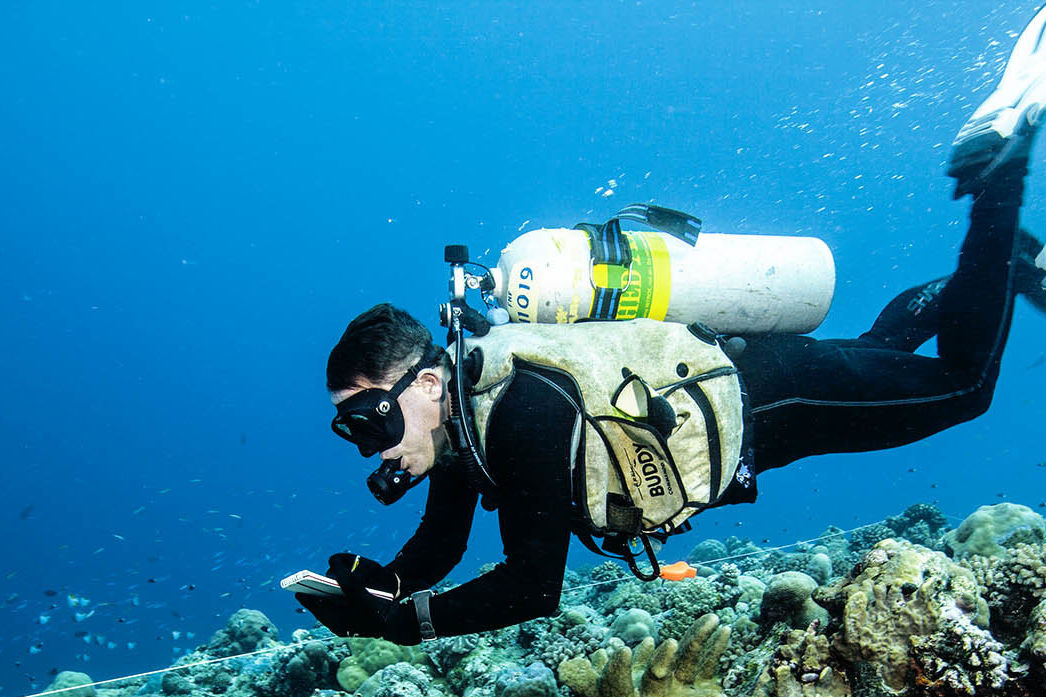
We're developing new techniques to help coral reefs adapt and build resilience.
#What we’re doing
Reef Recovery 2030 is the Great Barrier Reef Foundation’s ambitious 10-year collective effort to save the Great Barrier Reef and support global coral reef conservation.
Led by the Foundation, in partnership with the world’s leading coral reef scientists, Australian Government, reef managers, First Nations people and local communities, Reef Recovery 2030 will boost the resilience of our unique Reef ecosystems and the people that rely on them.
#Related
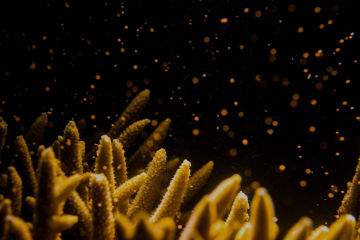
Explainers ·
What is coral spawning?
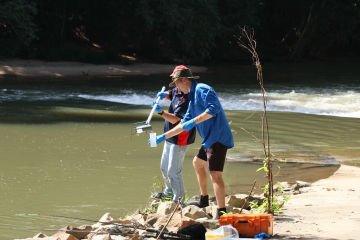
Explainers ·
Uncovering hidden species with eDNA
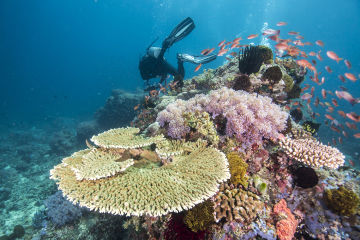
Explainers ·
What is biodiversity and why is it so important?
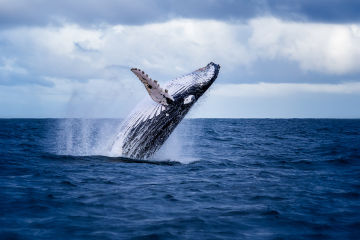
Explainers ·
